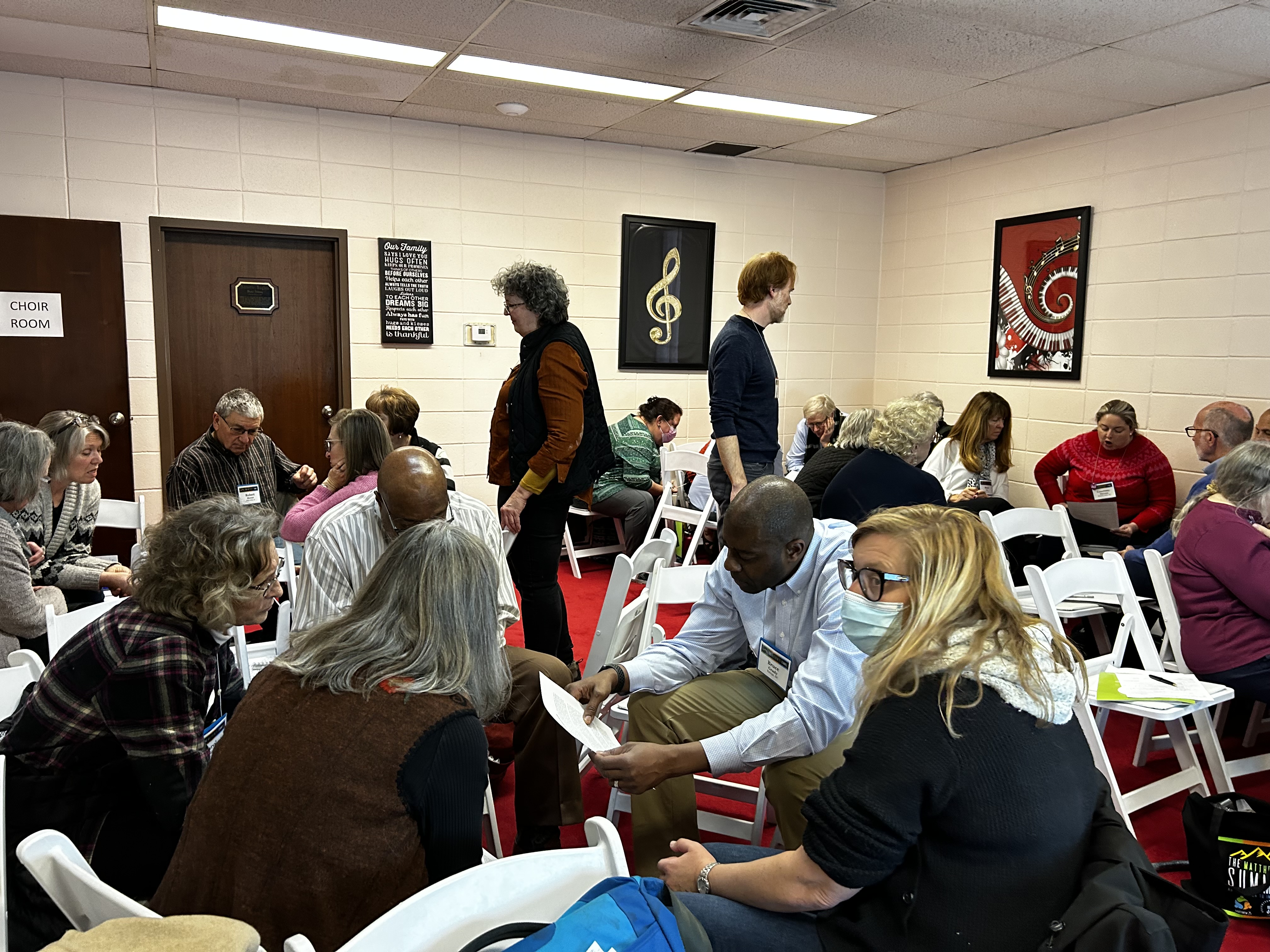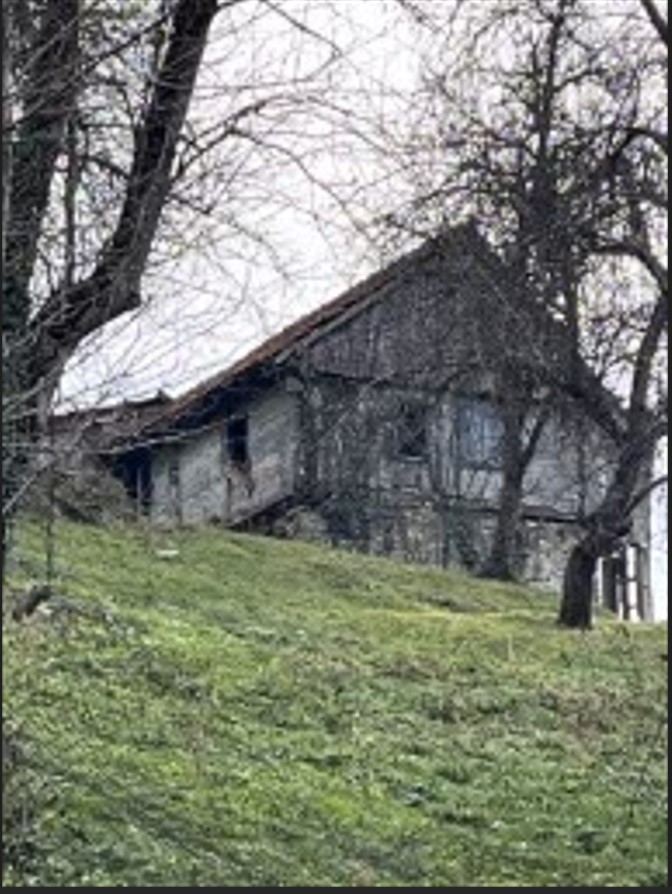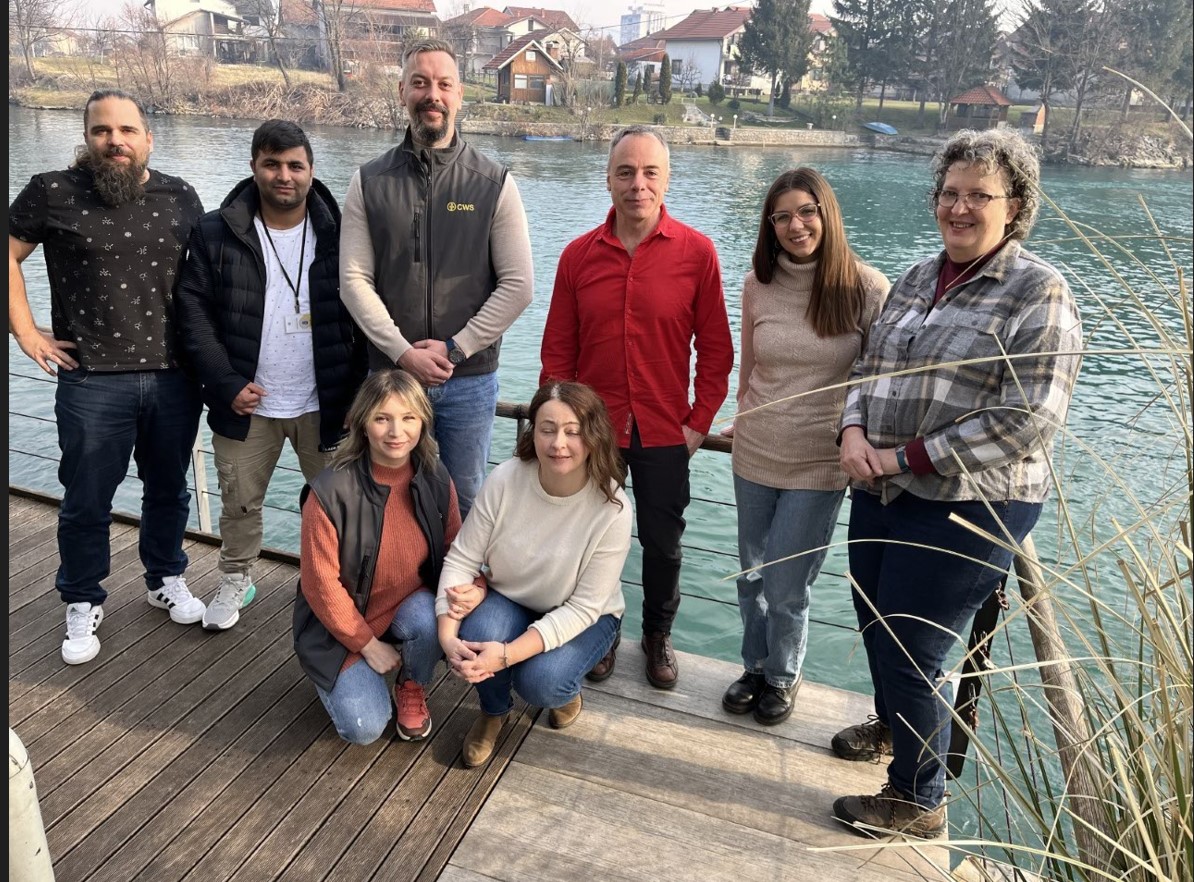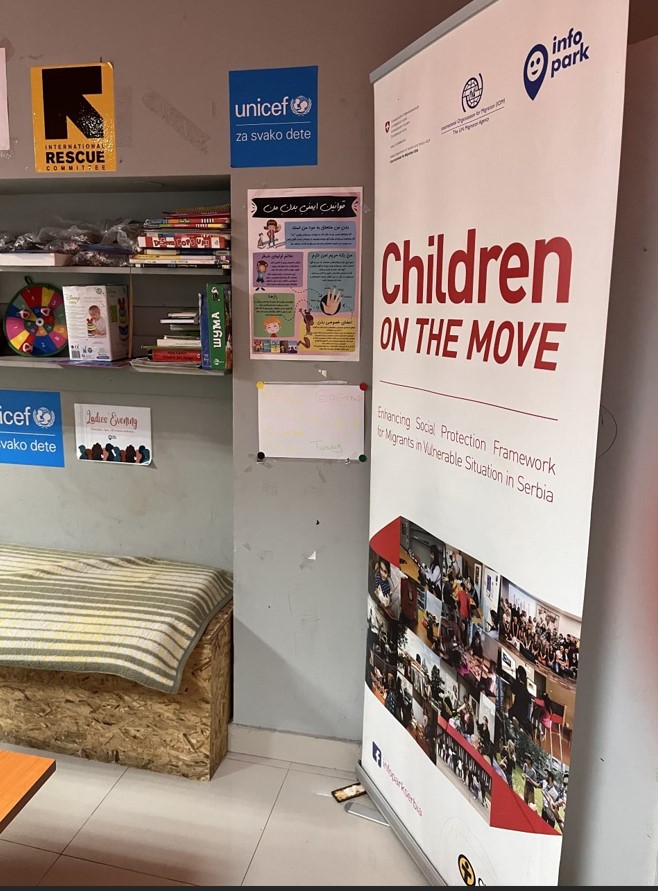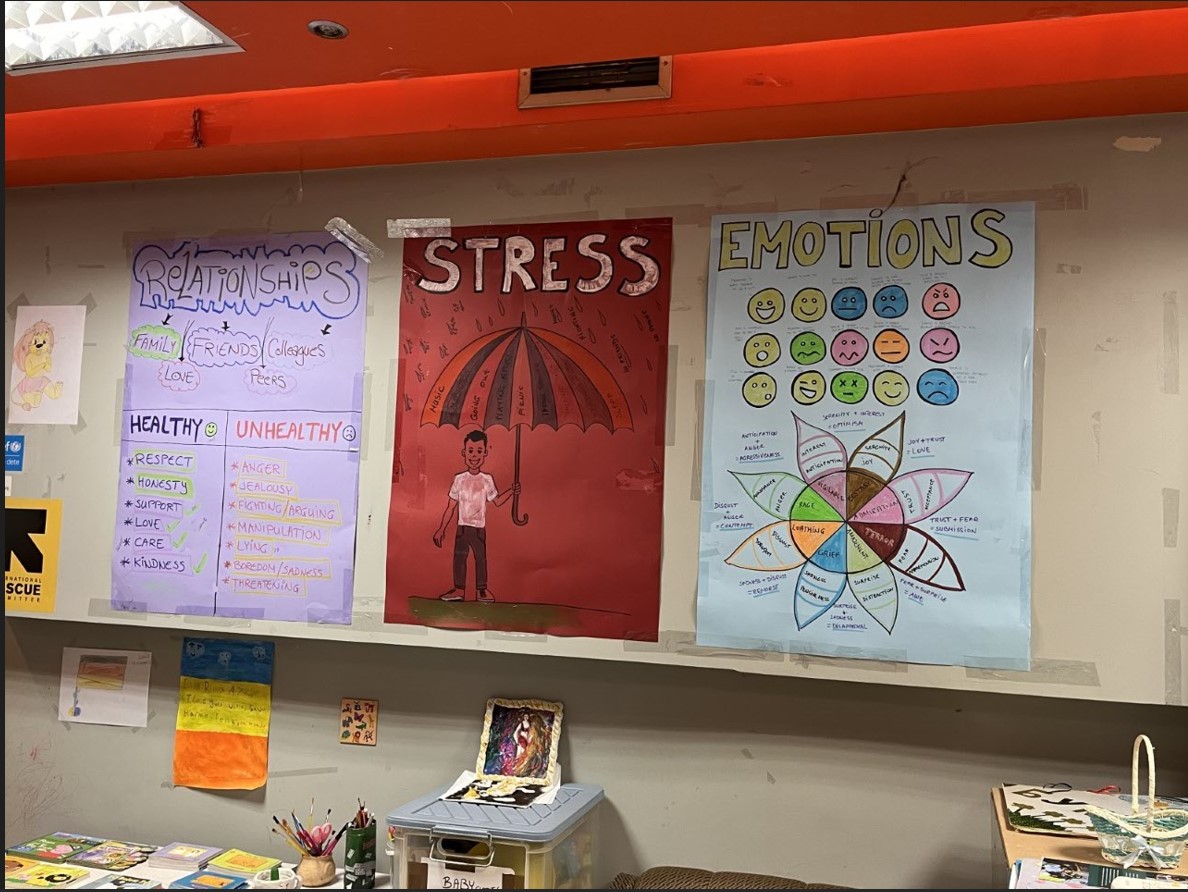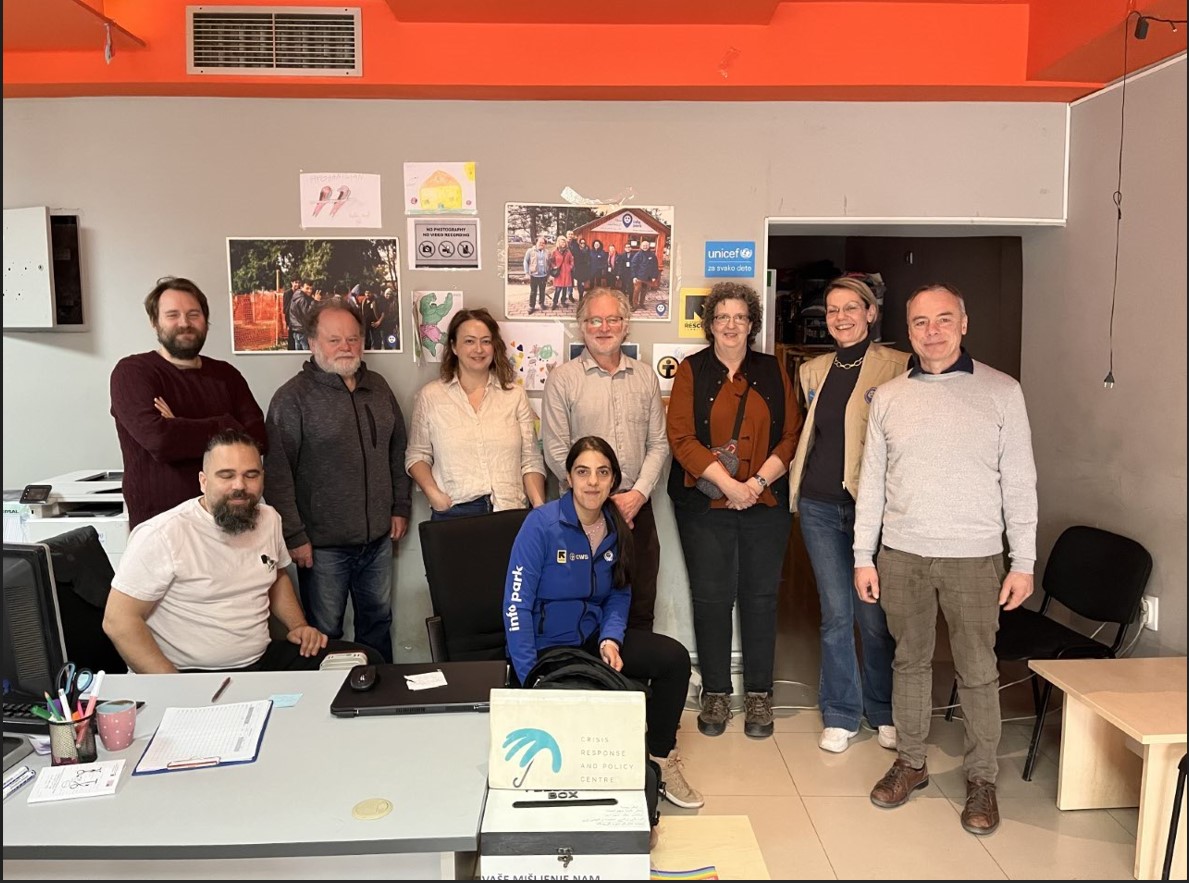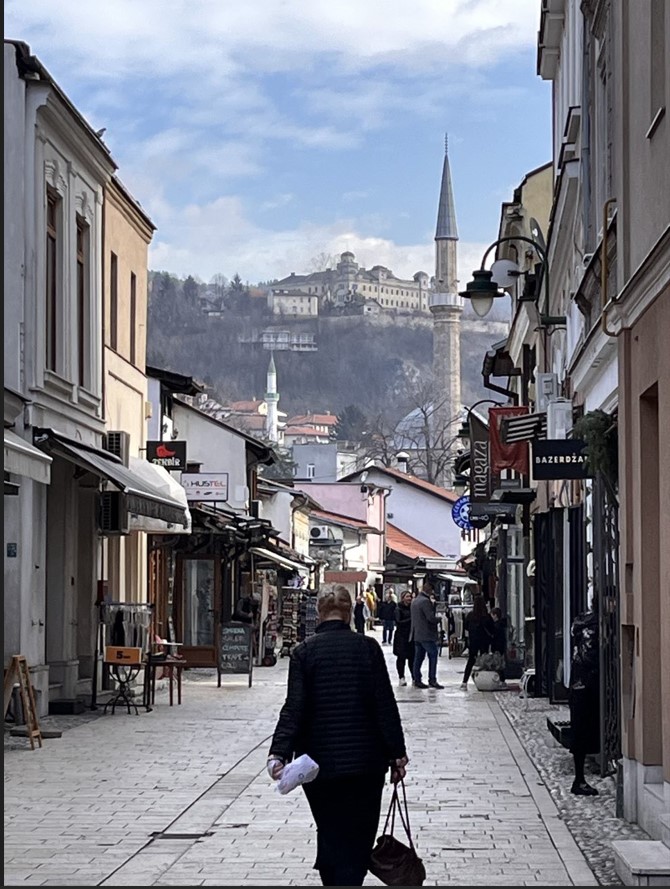A letter from Ellen Smith, mission co-worker serving in Russia, Belarus, Ukraine and Poland
Spring 2024
Individuals: Give online to E132192 in honor of Ellen Smith’s ministry
Congregations: Give to D500115 in honor of Ellen Smith’s ministry
Churches are asked to send donations through your congregation’s normal receiving site (this is usually your presbytery)
Warm greetings to you all,
It has been a season of travel that began in mid-January with the Matthew 25 Summit in Atlanta, where Ryan White and I presented a workshop on Migration and Militarism. I had not known what to expect from the summit, but it proved to be extraordinary – so many Presbyterians gathered to explore ways to engage more deeply in the call of Matthew 25.
Issues of migration and militarism fit within the Matthew 25 foci. Ryan and I worked with Mark Adams and Joseph Russ, our colleagues in Central America, to look at migration into both Europe and the United States and the militarized barriers that exist. In some cases, as at the Belarusian border with Poland, Lithuania and Latvia, the migrants themselves have been militarized. In reaction to European Union (EU) sanctions against Belarus, migrants have been lured to Belarus, pushed to the borders of Belarus with the EU, and instructed how to enter the EU illegally. The migrants are meant to be a menace. If these migrants, coming from the Middle East and African nations make it to the border, they are not welcomed as the Ukrainians were. They have suffered brutal pushbacks by border guards on both sides of the border. Whatever the cause that drives people to leave their homes, families and friends, they make the journey with hope, often a desperate hope.
Since the full-scale invasion of Ukraine on February 24, 2022, my focus has been, almost entirely, on people on the move (not just Ukrainians). People are on the move globally for many different reasons – full-scale war, threat of violence, environmental disaster, poverty, and many others.Following the summit, I flew to Rome for a partner consultation entitled “People On The Move.” It was hosted by the Federation of Protestant Churches in Italy, PC(USA), the United Church of Christ, the Christian Church (Disciples of Christ), and the Reformed Church of America. The consultation brought together the voices of migrants and partner organizations in the Middle East and Europe to explore the root causes of migration, the challenges migrants face upon arrival in a new country, and the ways partner organizations provide welcome. It was a powerful gathering and a privilege to hear from the migrants themselves, who had all made difficult journeys. The consultation concluded with discussions about advocacy work in both Europe and the United States. One of the questions we asked is, “What does it mean for the PC(USA) to be a Sanctuary and Accompaniment Church as declared by the 225th GA held in 2022?”
Following the consultation in Rome, Area Coordinator for the Middle East and Europe Luciano Kovacs and I met in Zagreb, Croatia to explore the Balkan route of migration into Europe. It is one of many routes, just as there are different routes of migration into the United States. We traveled with Serbian staff members of Church World Services, driving from Zagreb to Bihac (Bosnia-Herzegovina). The Balkan route moves back and forth between Serbia and Bosnia, depending on the politics of borders. Following the December elections in Serbia, the route has shifted back to crossing Bosnia.
The border between Bosnia (not EU) and Croatia (EU) is one of the longest borders in Europe. Migrants from Syria, Afghanistan, Morocco, Egypt, Sudan and other countries have traveled through Turkey, Bulgaria and Serbia to reach Bosnia and approach the Croatian border. It is a hostile border, heavily militarized to keep the migrants out. Border guards regularly destroy people’s cell phones and take their money, often beating them before pushing them back across the river into Bosnia.
Migrants try again and again. They have not come on the journey to go home again. It’s called ‘the game,’ a very hard game that desperate hope drives them to keep “playing.” (The NPR broadcast on March 27, 2021 “For Migrants In Bosnia, The ‘Game’ Is A Perilous Journey To A Better Life” details their trek.)
Luciano and I spent one day with an Austrian NGO, driving the back roads, where we met a group of young men who had just been pushed back. Cold, hungry and discouraged, they were ready to return to the refugee camp, so that they could recover before trying again. We visited the camp the next day and saw acres of containers in the middle of nowhere. The camp is an improvement over the previous set-up because the containers provide shelter from the elements, but it is not a place to stay. The goal to migrate always remains.
From Bihac, we drove to Belgrade, Serbia, to meet with Church World Service (CWS) partners. Their work focuses on families on the move and unaccompanied minors, most of whom are between 14 and 17 years old, though some are as young as 10 and 12 years old. These children are the most vulnerable. They have not left home lightly. Circumstances have driven them to seek something better. If they can make it across the border, they are still vulnerable. Smugglers are ready to take what they have and pass them off to traffickers. If they make it to Germany, they are likely to find themselves in new refugee camps. Hope is a hard thing to hold on to, but they are driven on by the family left in the circumstances that started their journey.
From Belgrade, we flew to Sarajevo, the capital of Bosnia and Herzegovina. We connected with two centers, one of which was run by partners of PC(USA)’s partner Mediterranean Hope. This center welcomes migrants, providing hot tea, fresh clothes, and kindness along the way. Sometimes the migrants they welcome are new arrivals, at other times they are people who have returned from being rejected at the border and need to recuperate before trying again. Staffed by young people, the center provides compassion and a bit of relief. The other center was a shelter for unaccompanied minors, run by the Jesuit Refugee Service. They have space for 20 boys, and they were getting ready to welcome a new group that would take them to capacity again. The youngest boy at the shelter was just 12 years old. His parents called and asked why he had not resumed his journey but it has been winter. The shelter has been able to get him into school and sports activities, but eventually, he will be on his way again. I found it striking that within the shelter there are boys that would be enemies, had they stayed home. From Afghanistan, there was one boy who fled because his family was being killed by the Taliban and another who fled because the Taliban was trying to recruit him. One is Sunni and one is Shia, but they don’t fight. They have enough. They are warm, they are fed, they are safe, and they are met with kindness. May they find the same at the end of the journey they are on.
We need a new narrative for the people on the move and we need to think about what welcome should look like. I hope you will ask me about the Roma ministry we visited in Belgrade and the organization working with the LGBTQIA community in Sarajevo. These are important stories too.
It has been a heavy season of travel. I am thankful for your prayers and all the ways you support me, including listening to the stories.
Peace to you this day,
Ellen
![]() You may freely reuse and distribute this article in its entirety for non-commercial purposes in any medium. Please include author attribution, photography credits, and a link to the original article. This work is licensed under a Creative Commons Attribution-NonCommercial-NoDeratives 4.0 International License.
You may freely reuse and distribute this article in its entirety for non-commercial purposes in any medium. Please include author attribution, photography credits, and a link to the original article. This work is licensed under a Creative Commons Attribution-NonCommercial-NoDeratives 4.0 International License.
